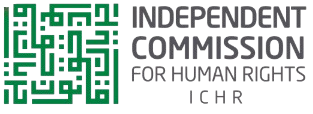During the 14th International Conference of National Human Rights Institutions, Dr. Dwaik called for increased international efforts to prevent the genocide in Gaza
During the 14th International Conference of National Human Rights Institutions, Dr. Ammar Dwaik called for increased international efforts to prevent the genocide in Gaza
As the Director-General of Palestine Independent Commission for Human Rights (ICHR), he urged national human rights institutions worldwide to intensify their efforts to combat hate speech, address freedom of expression restrictions, and express solidarity with Palestine across the globe. Dr. Dwaik made this appeal during his remote intervention at the conference held in Copenhagen, Denmark, under the theme "Torture and Other Forms of Ill-Treatment."
His call extended to officials from national human rights institutions, urging them to continue advocating for an end to the war. This plea aims not only to protect innocent civilians facing imminent genocide but also to uphold international law and humanitarian principles. Dr. Dwaik commended the global response of NHRI to ICHR's appeal, emphasizing the importance of engaging with governments, the International Criminal Court, and various United Nations and regional mechanisms.
Despite numerous human rights positions, Dr. Dwaik highlighted the lack of tangible progress. The relentless bombing in Gaza, which has claimed the lives of over 10,000 Gazans, with approximately two-thirds of them being children and women, and the ongoing systematic siege, continue to jeopardize the lives of over 2.3 million people, posing an imminent risk of genocide.
Dr. Dwaik also pointed out severe restrictions on humanitarian aid reaching Gaza, even before the escalation of the blockade on October 7th. On average, 500 trucks daily transported essential supplies to Gaza. However, Israel has only allowed passage to 451 trucks since then, significantly below daily requirements. These supplies are distributed exclusively in central and southern Gaza, excluding Gaza City and the northern areas, where approximately 300,000 Palestinians still reside.
Due to the war on Gaza, Dr. Dwaik and his colleague, Ra'fat Saleh, Manager of the Gaza and Northern Office, could not physically attend the conference. Dr. Al-Dweik conveyed Mr. Saleh's testimony, highlighting indications of famine in Gaza and the northern region due to Israel's denial of food and relief supplies, as well as the destruction of a large water reservoir by an Israeli airstrike, endangering over 70,000 lives.
Regarding ICHR efforts to combat torture, Dr. Dwaik mentioned their collaboration with Palestinian authorities to monitor the catastrophic impact of the ongoing war on Gaza and the severe Israeli human rights violations occurring in the West Bank. These violations include mass arrests of Palestinian activists, often accompanied by torture and ill-treatment, cases of settler violence, and the use of lethal and disproportionate force by Israeli occupation forces against Palestinians. Since October 7th, these actions have resulted in the martyrdom of 150 Palestinians in the West Bank.
